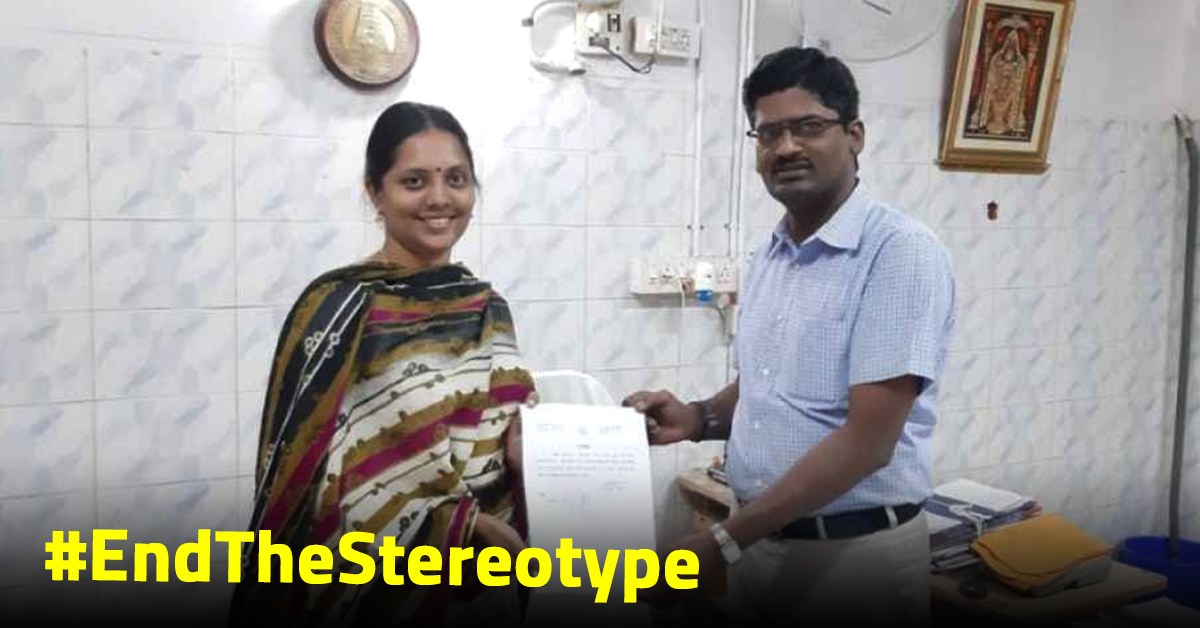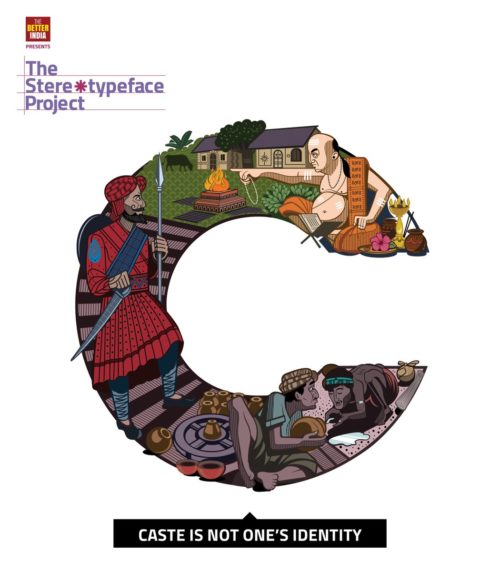TN Woman’s Fight For India’s 1st ‘No Caste, No Religion’ Certificate Is Crushing Stereotypes!
“I was brought up to think this way. My parents did not mention any caste or religion in my birth and school certificates." #EndTheStereotype

While elements like caste and religion create a sense of collective identity and community among some, they have, since time immemorial, been used as a tool to divide people, resulting in violence, discrimination, and public unrest.
Leading the way for people who want to reject these tools of division, MA Sneha, a lawyer from the Tehsildar of Tirupattur in Vellore district, Tamil Nadu has possibly become the first woman in India to acquire a no caste, no religion certificate in place of a community certificate.
A community certificate or caste certificate is a record issued by the State government. It certifies that a person belongs to a particular minority community like Scheduled Caste (SC), Scheduled Tribe (ST) or Other Backward Classes (OBCs).
It took her nine long years to receive the certificate.

“I was writing letters to the Tehsildar, requesting a no-community certificate in the beginning and they were rejected with barely a look. After multiple attempts, I applied by employing a procedure they used for a community certificate in 2017. They had to answer the letter as it was numbered. They initially said there was no precedent for it, besides raising points like, ‘what is the use of this certificate’ and ‘we cannot agree to give you one without any particular reason,’” informs Sneha.
B Priyanka Pankajam, the Sub-Collector of Tirupattur told the Hindu that they decided to give the certificate to Sneha after verifying all her documents and finding the caste and religion columns blank.
Since they felt the decision would not be harming anyone and was not made at the cost of another’s identity, they used their discretion to come to a decision —and Sneha was given the certification she desired.
Sneha’s desire for this certification could stem from the way she was raised. Her parents did not mention any caste or religion in her birth and school certificates and ensured that she and her two sisters, Jennifer and Mumtaz, identified only as Indian. Progressive thinking was a large part of her household and even her wedding to Mr Parthiba Raja, a Tamil professor, was devoid of any religious ceremonies. The couple has named their three daughters in the same way Sneha and her sisters had been.
“So, this is my lifestyle from the beginning. If this is how we live, then why shouldn’t we get a ‘no caste, no religion’ certificate in place of a community certificate,” says Sneha.
Ever since she received this no caste, no religion certificate and consequentially the publicity that came with it, many people have been asking Sneha if they could acquire this as well.
People without a community certificate can follow the same procedure Sneha has. But others must seek out the judicial system, as officials such as Tehsildar and Sub Collector don’t have the authority to revoke given certificates.
Sneha plans to discuss this with some advocates and file a writ. “Through the writ, I seek a judicial or government order which will hopefully lay out a procedure whereby people who are willing to get a ‘no caste, no religion’ certificate can acquire one,” she tells us.
#EndTheStereotype
This story is part of The Stereotypeface Project, an initiative by The Better India that challenges 26 stereotypes, which continue to exist even today. We are showcasing these stereotypes through all the letters of the English language alphabet.
Stereotypes exist everywhere — they are passed down over generations. Instead of embracing and celebrating what makes us unique, we stand divided because of them!
We’ve unconsciously learned to stereotype, now let’s consciously #EndTheStereotype.
Visit www.stereotypes.in to know more about the campaign and support the effort!
How can you support this campaign?

1. Follow this thread on Twitter or Facebook
2. Re-Tweet / Re-share the stereotypeface that you would like to put an end to
3. Use #EndTheStereotype and tag @TheBetterIndia
(Edited by Gayatri Mishra)
Like this story? Or have something to share? Write to us: [email protected], or connect with us on Facebook and Twitter.
If you found our stories insightful, informative, or even just enjoyable, we invite you to consider making a voluntary payment to support the work we do at The Better India. Your contribution helps us continue producing quality content that educates, inspires, and drives positive change.
Choose one of the payment options below for your contribution-
By paying for the stories you value, you directly contribute to sustaining our efforts focused on making a difference in the world. Together, let’s ensure that impactful stories continue to be told and shared, enriching lives and communities alike.
Thank you for your support. Here are some frequently asked questions you might find helpful to know why you are contributing?


This story made me
-
97
-
121
-
89
-
167











